EPISODE 145 THE LEGEND OF THE SKEOCH NAME
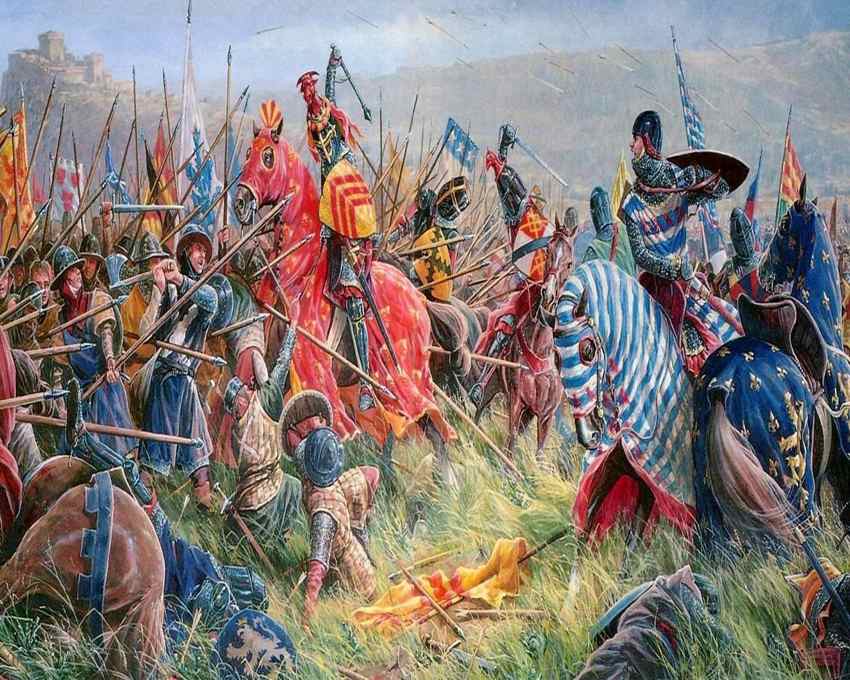
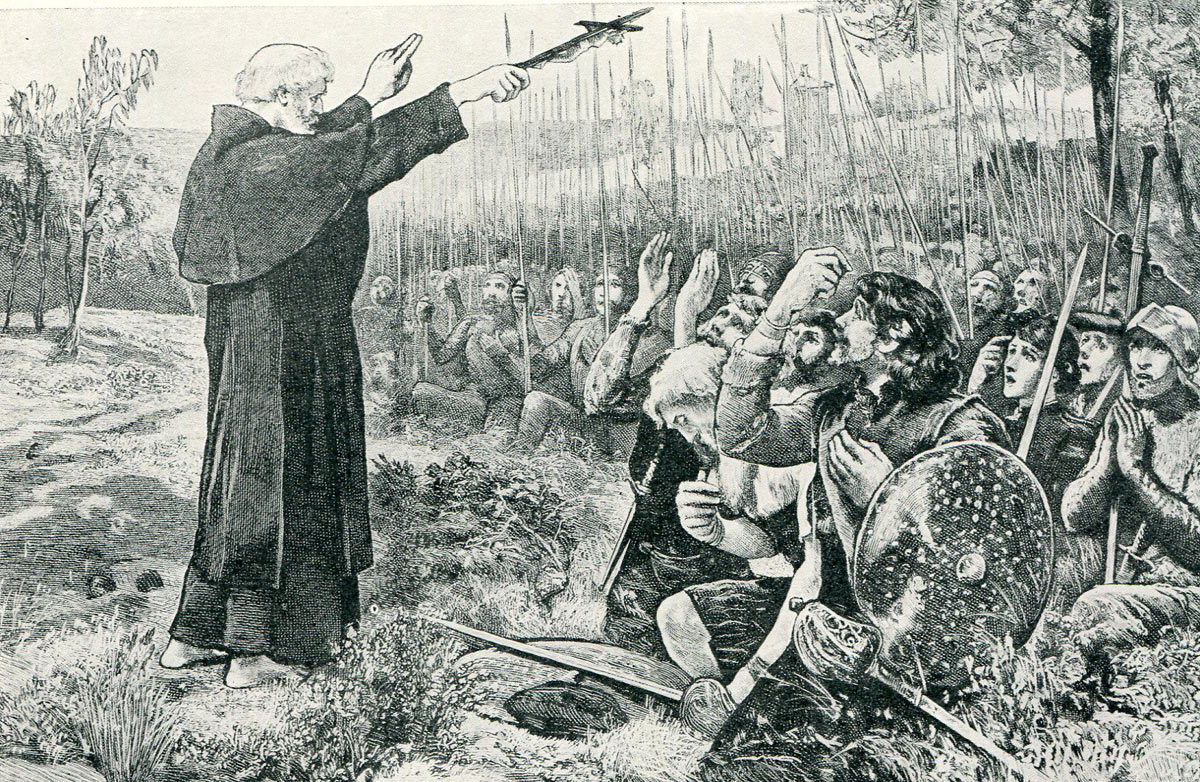
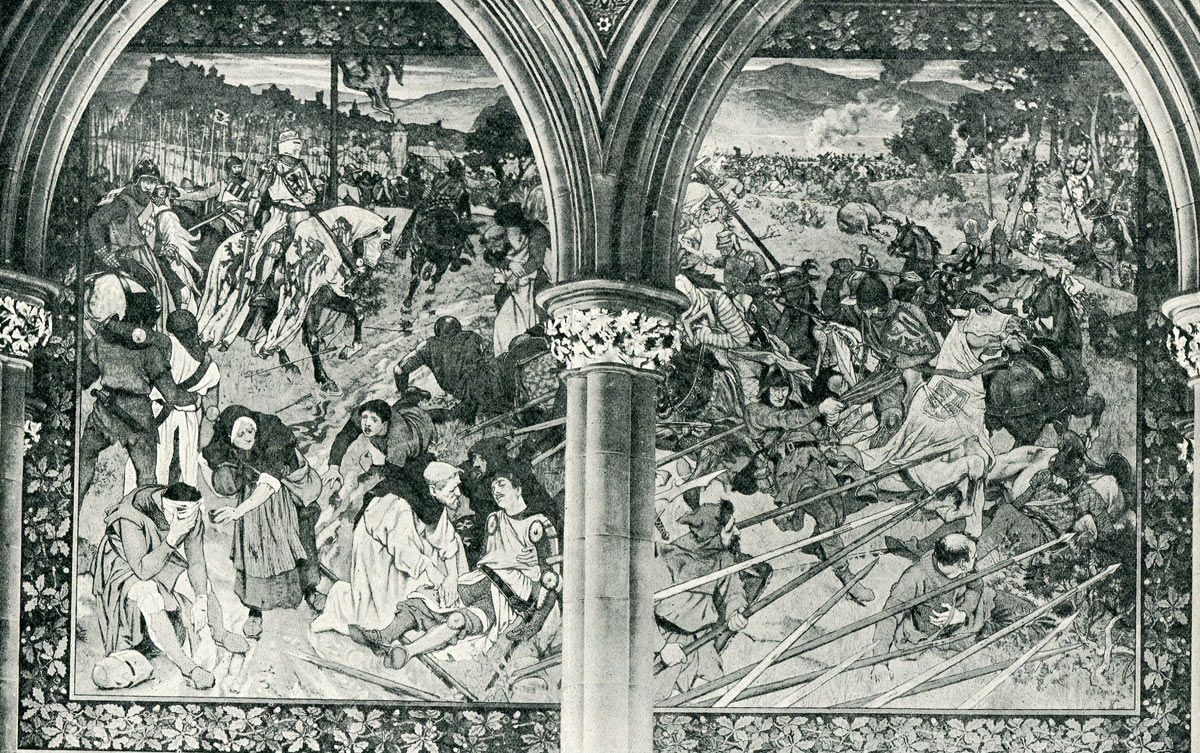
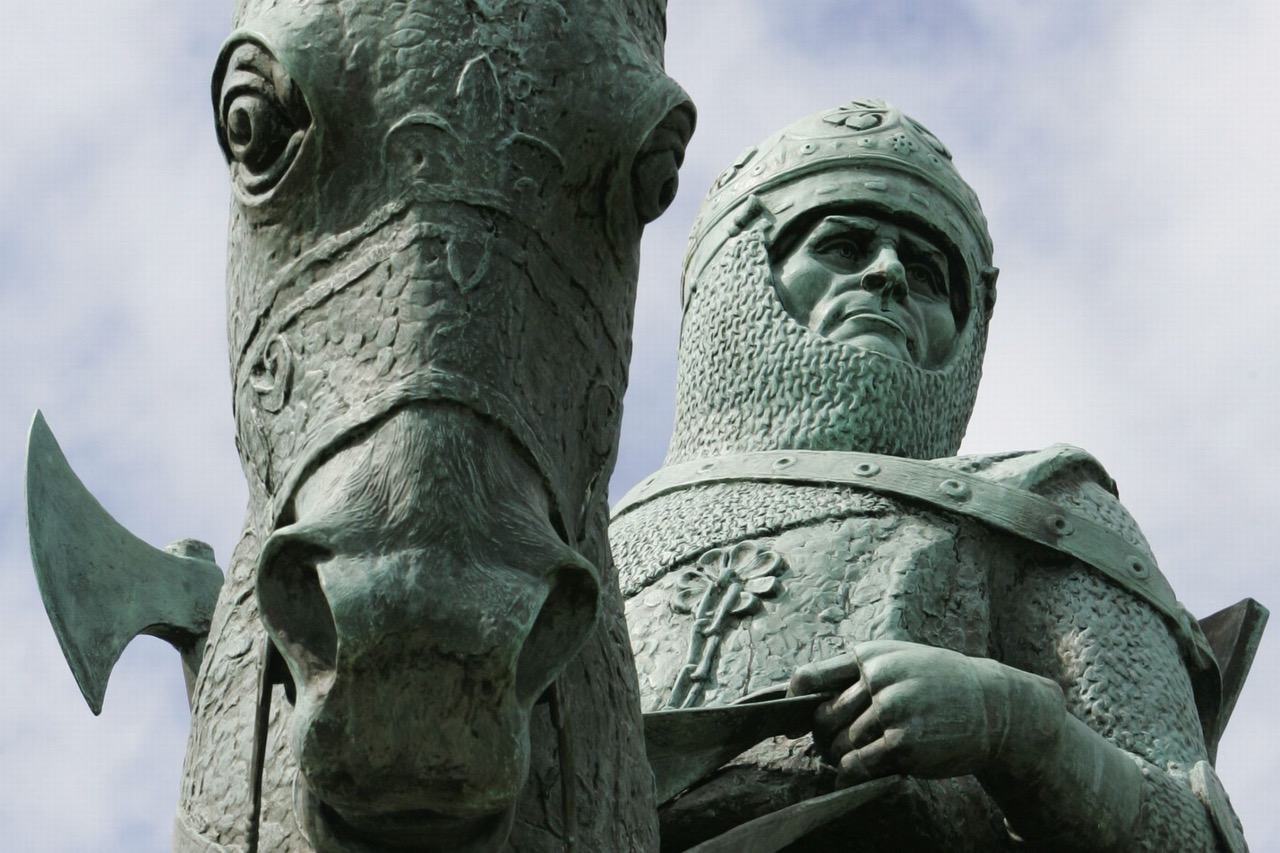
alan skeoch
Oct. 2020

The Battle of Bannockburn IN 1314 was a bloody affair that seemed to favour the English until their war horses and soldiers got mired
in the muddy swampland at Bannockburn.

Before the battle of Bannockburn a priest presided over the saying of mass as shown here. The Scottish soldiers bent their knees
and surrendered themselves to their God. The English recon troops thought this was surrender to the English. Bad error. The priest
above carried with him religious relics of St. Columba, the Irish saint who converted the Scots … and also dedicated the church of
St Skeoch near Craig and the chapel of St. Skeoch at Bannockburn. One source stated that the battle was fought on the Skeoch steading
(Skeoch farm) .

This painting is useful in that it shows civilians on the battlefield helping the wounded. Also a young boy who seems lost.

Robert the Bruce fought with a battle axe as pictured above. With that axe he killed one of the English leaders . TURNED THE BATTLE
How wold you like this battle axe planted in your brain?
I , ALAN SKEOCH, SURRENDER….
I give up. Surrender. My search for St. Skeoch has numbed my brain. You may have more
strength than I do but I wager you do not. Try reading 502 pages filled with Scottish saints.
And that was not the end of the book. It took 502 pages to find St. Skeoch who is briefly mentioned
under the heading ‘obscure Irish saints’. A few years ago my good friend Ed Jackman who is
a Dominican priest offered to search for St. Skeoch in some book of the saints. He never found
her. Yes, she is female. Now I understand why. Scotland is full of saints. Seems to me that
every well in Scotland has been dedicated to a saint.
I have spent so much time searching for the old girl, St. Skeoch, that Marjorie fears I am becoming celibate.
No fears. I have put down the book of saints. Leave it for a better person. Maybe you. Consult James
Murray Mackinlay, M.A., Folk For of Scottish Lochs and Springs, Ancient Church dedications in
Scotland, published in 1914. It is on the internet word for word. Hours and hours, three days off and
on. What did I find? On page 502 I hit pay dirt…sort of. Yes, Page 502! “One of St. Columba’s companions from Ireland (in 12th century) to Iona bore
the name ‘Echoid’. Bishop Reeves thinks that it is represented in a corrupted form in the name
of the ancient Forfarshire parish of St. Skeoch or St. Skay, otherwise Dunninald, now included in
Craig. Its church, which no longer exists, stood” near Elephant Rock north east of Edinburgh.
And there was a St. Skeoch chapel at Bannockburn.
Makes me tired just putting this in print. And it probably bores you, the readers, silly.
Why am I writing this? Because of the legend…truth or myth about Skeoch origin.
THE LEGEND OF JOHN AND JAMES SKEOCH
I think it was aunt Greta or maybe Aunt Elizabeth that first told me the legend.
To them it was truth I think. The story came down through the family
orally. Nothing firm. Hearsay. Let me put the story forward in as brief a
way as possible…using hypothetical dialogue.
“Alan, our name dates back to the Battle of Bannockburn…1314”
“How?”
“After the battle ended two young boys were found alive on the battlefield.”
“How young?”
“No one knows. But young enough that they did not know who they were …very young.”
“Who found them?”
“No one knows…likely Scottish soldiers combing the blood strewn field for weapons or
things of value.”
“What happened to the boys?”
“They were taken to the chapel of St. Skeoch…chapel was at Bannockburn…boys taken there
as orphans.”
“Who was at the chapel?”
“No one knows now…maybe a priest. Chapels were smaller than churches usually
and were places for prayer. Tiny building likely. The boys were taken there according to the legend.
And given names.”
“Names?”
“They must have been very young if they did not know their own names.”
“Or they were renamed.”
“The new names…”
“Named James and John Skeoch.”
“Is this true?”
“The story has been passed down through the family. And the names James
and John have been passed from Skeoch parents to their first born males…through
the centuries. In 1846 the two boys that travelled to Canada from Scotland were
James and John Skeoch. Your grandfather was James Skeoch…he was the son
of the little boy who travelled to Fergus in 1846. His son was James Skeoch, killed
in World War I..”
“If this is true, then why am I not named James,?
“Mom probably did not know the story, she was English, and Dad did not really care.”
(aunt Elizabeth named her eldest boy James…as seems to have been the tradition)
“Let me get this straight. Two little boys were found on the Bannockburn battlefield
in June, 1314. They were placed in the chapel dedicated to St. Skeoch which was
near the Battlefield. Whoever took them in renamed them James and John Skeoch.
And that is origin of our surname.”
FINDING THE KERNEL OF TRUTH
There is no record to confirm the story of James and John Skeoch. Nothing except
hearsay. But there are a few facts that give a bit of credence to the story.
1) The Battle of Bannockburn was fought on the ‘Skeoch steading” (Skeoch farm)
2) There was a chapel dedicated to St. Skeoch on the Banncokburn field
dating back to the 12th century and St. Columba.
3) St. Skeoch was a sixth century Irish saint.
4) St. Columba dedicated a church to St. Skeoch near Craig in Scotland…the chapel
at Bannockburn also it seems.
5) Skeoch is a place name … i.e. Skeoch Wood on the Isle of Cute,
village of Skeoch at Bannockburn, Skeoch Hill in Lowland Scotland.
6) St. Skeoch is also known as St. Skay
I have tried to keep this Episode as short as possible because I know many
readers will not give sweet goddamn about the Skeoch name. This is my
fifth version of the story. I cut out the whole battle of Bannockburn other than
the date.
alan skeoch
Oct. 2020
post script: A researcher named Adrian Dyack recorded the following
information on May 13, 2018. Rather interesting. I wonder if he plowed
through the Mackilnay book of saints as I did.
Discussion NO 7153Saint Skeoch Church or “church of St. Doninad” was first mentioned in the written record of 1161 when itwas given by Ing Malcolm IV to Restenneth Priory.Saint Skeoch, or Saint Skae, as it is locally pronounced, appears to have received its name from a saintof that name. St. Skae was given to the parish and to the chapel with its burial ground at the landwardend of the Rock of St. Skae. At present the Rock of St. Skae is more usually known by its descriptivename of the Elephant Rock.The Church of St. Skeoch seems to have been suppressed for some time as in 1576 it was written that“Sanct Skae or Dinnynum needs nae reidare” (Reader). The church appears to have been restored about1587, as in that year Andrew Leith had “a gift of life” of 3 chalders, 12 bolls meal yearly out of thebishoprick of Brechin for his services at the Kirks of “Marytoun, Inchbrock, Lunan and St. Skae”.The parishes of St. Skeoch or Dunninald were united with Inchbrock or Craig in 1618 to form the newparish of Craig.Who was St. Skae? A.J. Warden, writing in 1885, said that St. Skeoch is supposed to be one of the twelvedisciples of St. Columba and a northern saint. There are three saints of this name in the Irish Calendar.Dr. Reeves considers the word a corruption of Echoid or Eochaidh, which is found under the name of St.Skeoch in some of the south-western districts of Scotland.”Norman Atkinson, Senior Servies Manager for Cultural Services, Angus Council and a former Curatorof Montrose Museum has informed me, in recent correspondence that the church was dedicated to St. Scaithknown as Skae or Skeoch, who was one of the three maidens Munster. She lived in the early sixth centuryThere is another Scottish church or chapel dedicated to her at Bannockburn and this is mentioned byProfessor Geoffrey Barrow in his book of Robert the Bruce. This Irish virgin’s feast day is usuallythe 6’th of September but why she was commemorated in the church by the Rock of St. Skae isnot known.The only ancient artefact which appears to be linked to the site was a small bone pendant with Celtic carvingbut this was removed from Dunninald and has never been photographed or recorded.Adrian L. Diack, MAPosed by Adrian Diack on St. 25 May, 2013
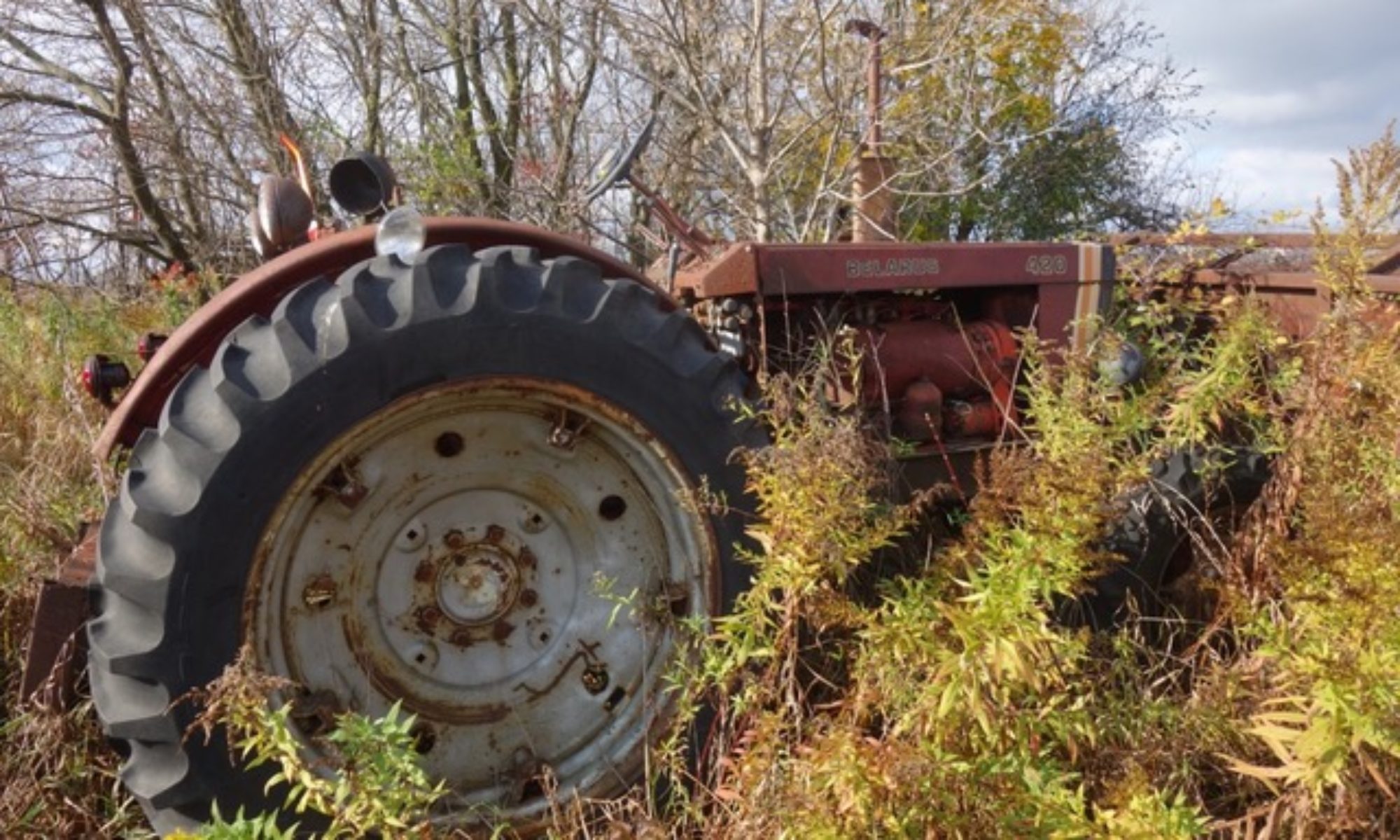
How interesting